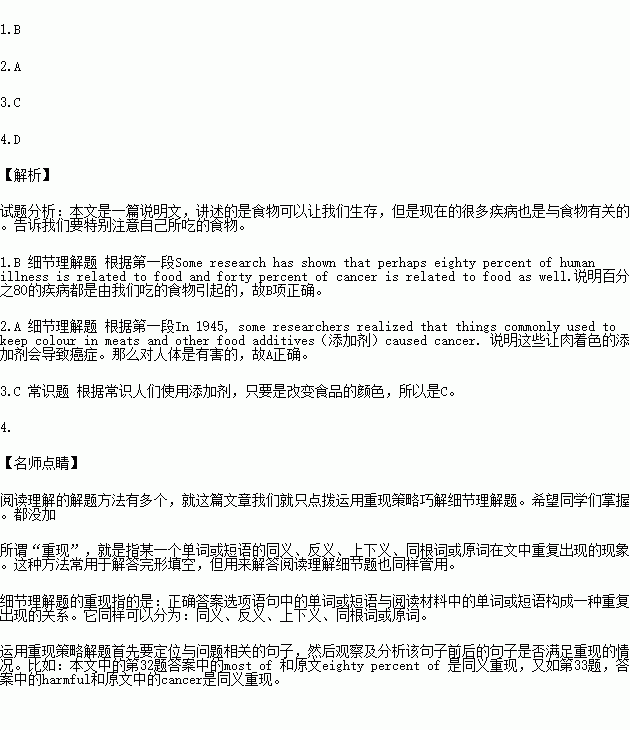题目内容
The food we eat seems to have a great effect on our health. Although science has made big steps in making food more fit to eat, it has, at the same time, made many foods unfit to eat. Some research has shown that perhaps eighty percent of human illness is related to food and forty percent of cancer is related to food as well. That food is related to illness is not a new discovery. In 1945, some researchers realized that things commonly used to keep colors in meats and other food additives (添加剂) caused cancer.
Yet, these additives remain in our food, and it is difficult to know which things on the wrappings(包装)of foods are helpful or harmful. The additives which we eat are not all so direct. Farmers often give penicillin (青霉素) to their animals, and because of this, penicillin has been found in the milk of cows. Sometimes similar things are supplied to animals not for their health, but just to make a profit.
The farmers are simply trying to fatten the animals in order to get a higher price on the market. Although some countries have tried to control such things, the practice continues.
1.According to this passage, we can know _____.
A. perhaps most kinds of cancer are related to what people eat
B. perhaps most of human illness is caused by what we eat
C. cancer was discovered in 1945
D. science has made food unfit to eat
2.Things that are used to keep colors in meats are _____.
A. harmful B. useless C. helpless D. dangerous
3.People use additives _____.
A. to make food more unfit to eat
B. to cause cancer
C. to change the color of the food
D. to take off the diseases of the food
4.Which of the following is NOT true?
A. Some wrappings of food are harmful.
B. Farmers try to make more money on the market by fattening their animals.
C. "The practice continues" means "things are still going on like that".
D. We needn't take care of what we eat.
 阳光课堂课时优化作业系列答案
阳光课堂课时优化作业系列答案
